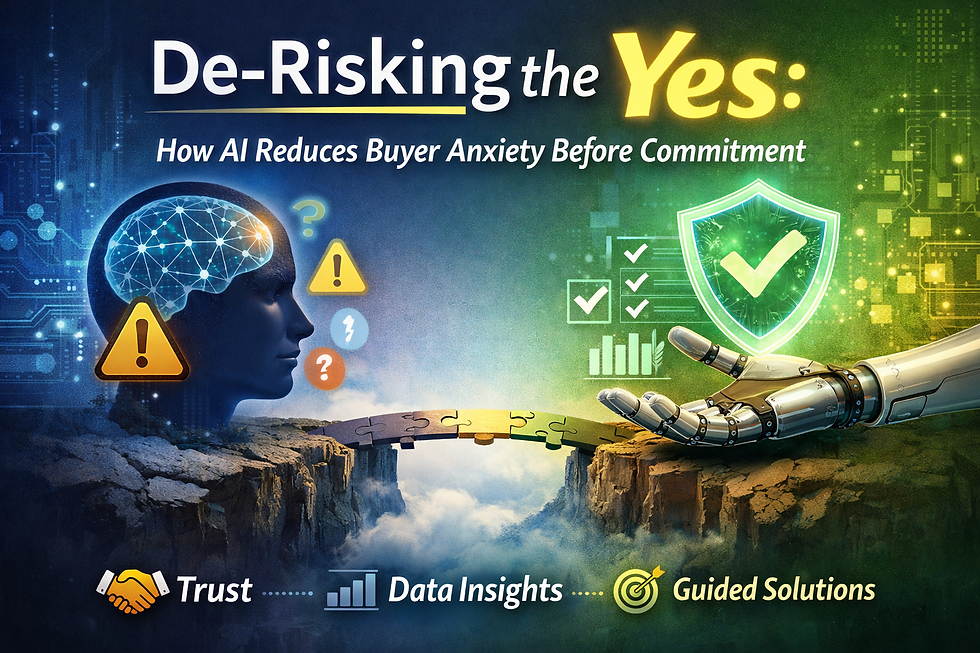Personalization Engines vs. Agentic AI: What Drives More Sales?
- eCommerce AI Expert

- Aug 28, 2025
- 2 min read

Introduction
Personalization has been a retail buzzword for more than a decade. From “customers who bought this also bought that” recommendations to automated product emails, personalization engines have shaped much of e-commerce. But as customer expectations rise, simple rule-based personalization isn’t enough.
Enter Agentic AI—a new wave of AI that doesn’t just suggest but acts like an intelligent agent, capable of reasoning, adapting, and engaging with customers in real time. The question is: which one drives more sales?
What Are Personalization Engines?
Personalization engines rely on algorithms, rules, and customer data to deliver tailored experiences. Examples include:
Product recommendations on websites.
Dynamic pricing engines.
Targeted email campaigns based on behavior.
Their Strengths:
Proven track record in boosting average order value.
Scalable for large product catalogs.
Easy to implement with standard e-commerce tools.
Their Limits:
Mostly reactive—based on past behavior, not current intent.
Limited flexibility when customers shift preferences.
Can feel impersonal or repetitive over time.
What Is Agentic AI?
Agentic AI goes beyond “if-this-then-that” personalization. It creates autonomous AI agents that can:
Engage in conversations (voice/chat) to uncover intent.
Proactively recommend bundles, upsells, or alternatives.
Resolve queries instantly—returns, shipping, warranty questions.
Adapt recommendations in real time, not just from historical patterns.
Think of it as moving from a static recommendation engine to a dynamic sales assistant that reasons and acts.
Comparing the Two
Feature | Personalization Engines | Agentic AI |
Approach | Rules + historical data | Reasoning + real-time context |
Customer Interaction | One-way (suggestions) | Two-way (conversations) |
Flexibility | Limited to pre-set rules | Learns and adapts instantly |
Sales Impact | Boosts cart value | Increases conversion + loyalty |
Best Fit | Static catalogs, predictable buys | Dynamic sales, high-touch D2C |
Which Drives More Sales?
Personalization engines will always have value—they’re efficient at nudging customers toward additional purchases. But Agentic AI drives higher conversions and stronger customer relationships because it:
Engages intent, not just behavior.
Closes gaps in the funnel (cart abandonment, objections).
Builds trust through human-like dialogue.
For retailers, the real sales lift comes from combining both: personalization for breadth, Agentic AI for depth.
Conclusion
In 2025, retailers and D2C brands can no longer rely on personalization engines alone. The next wave of growth comes from Agentic AI, which transforms digital interactions from static suggestions into dynamic conversations that convert.
Forward-looking platforms like Nurix are already enabling brands to bridge this gap, combining personalization with reasoning agents that don’t just recommend, but actually sell.




Comments